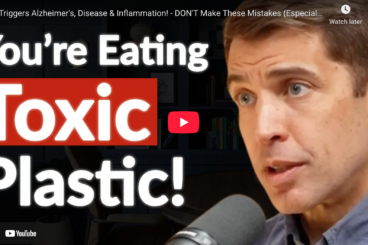Table of Contents
Identify the cause
Number one, I think that you should identify the cause with a caveat. Knowing the cause of your bad mood doesn’t make it better. What it does do is it stops your mind from ruminating and wondering why you’re not feeling well. Another quick tip on this is to understand that things in mental health are what we call multi determined. There are often many different causes. So you may be in a bad mood because you skipped lunch, you got some bad news at work, you’re not really feeling so good in your relationship and you got a little triggered by this or that. A lot of things inform our moods so try and identify the cause as a first step. These next ones are interventions or things that you can do that quickly boost your mood and they’re things that you can do yourself.
Let it out
Let it out. Whether this is just saying it out loud in private or in public, verbalizing it is helpful. Some people like to get a little more primal and yell a little bit. It depends, of course, how private you are in a situation, but to let out some of the feeling is a really important first step and to be vocal and active about it if you can.
Spend time with animals
My next suggestion is to spend time with an animal friend, creature, emotional support animal etc. It could be any animal, a pet, a cat, a bunny, a horse. Make sure and engage with that animal. This is great for stress relief. Animals are great mood boosters. They kind of take us out of the human, mental, intellectual thinking world and into that feeling world. If you don’t have a pet and you like animals, go to the dog park or a park, engage with some other people’s pets.
Play your hype song
Next up would be play your hype song. Music is really tied to our emotions. There’s lots of research on this so but having a playlist of some songs that reliably get you in a good mood, or if you’re in a funk, that help you feel a little bit more. Sometimes it can be a little bit somber or pensive of music if that’s the mood you’re in, but have some energetic hype song songs that always get you singing along and feeling good.
Physical meditation
I would also encourage a physical meditation. A lot of the time people think that meditation is sitting still and calmly breathing. Often it is, but they’re also physical meditations. I learned a lot about these from one of my mentors, Jim Gordon at the Center for Mind Body Medicine. One of my favorites that Jim taught me was a jumping meditation where you keep jumping over and over again for about three or four minutes. It really puts me in a fundamental state and helps me boost my mood.
Clean your space
My next suggestion is to set a timer for 20 or 30 minutes and get yourself a little more tidy. Tidy your desk or clean out your car. Maybe you get a little corner of your garage a little tidied up. Whatever it is, it’s going to help boost your mood because it helps you accomplish something. It’s a way of expressing a commitment to yourself that you’re going to transcend this mood and you’re going to have an organized palette from which to paint.
Prescription brain food
Next up would be prescription brain food. There are two ways that food and mental health in this setting work. When we look at the data overall, we’re thinking about dietary pattern and how that affects mental health or specific interventions like getting people to eat more whole foods and how that affects the mental health outcome. However, in an acute setting, eating some of your favorite foods, and if you like, engaging in cooking and preparing your food, can benefit mental health. There’s the food-cebo effect. This happens when you’re taking care of yourself and engaging in these healthy behaviors. There’s also that feeling you get from sustaining yourself with really good, delicious brain food. There are many other blogs on which foods you should pick but engaging in healthy, emotional eating in which you choose foods that feed our mental health and sustain us is a good option.
Spend time in nature
Next up on my list is to spend time in nature, surrounded, ideally by some greenery. This is known to improve and boost mood. A lot of hospitals actually are now designing green spaces because when people are around them, they feel better. So utilize this to your advantage. Get out. Go for a walk, go to a park, maybe plan a weekend away or camp for a night. If you haven’t done that for a long time, get out into nature and really try and be present and mindful. Nature works best when we smell it, when we use all of our senses, and we really listen. So use nature. It’s a great way to boost your mood.
Communicate
Last up is to communicate. I have two favorite ways to do this. One is to write in a journal. This way is communicating with myself trying to work that relationship with the self. Then the other is to call the right person. A lot of times we get this instruction to communicate and let it out. The caveat with that is to really make sure it’s the right person, someone who, if you’re in a bad mood or in a funk, is going to be supportive and isn’t going to try and fix things, but is going to listen, maybe even commiserate a little bit. , but that you know over, you know, your time with that person. Make sure to choose the right person and communicate.
Those are some of my tips for boosting mood in the short term. Please leave some comments on what works for you. There are so many things. I think an an important and final idea about this is to choose what works for you. Lots of people have ideas about what can boost mood and lots of studies have been done, but finding your tools and making sure you’ve got them in your toolbox to help you when you’re in that inevitable bad mood that happens to everyone is important. When you’re in that state, finding the things that help you feel better is imperative to taking care of your mental health and improving your mental fitness.




Cold water therapy! Plunging in the South Puget Sound.